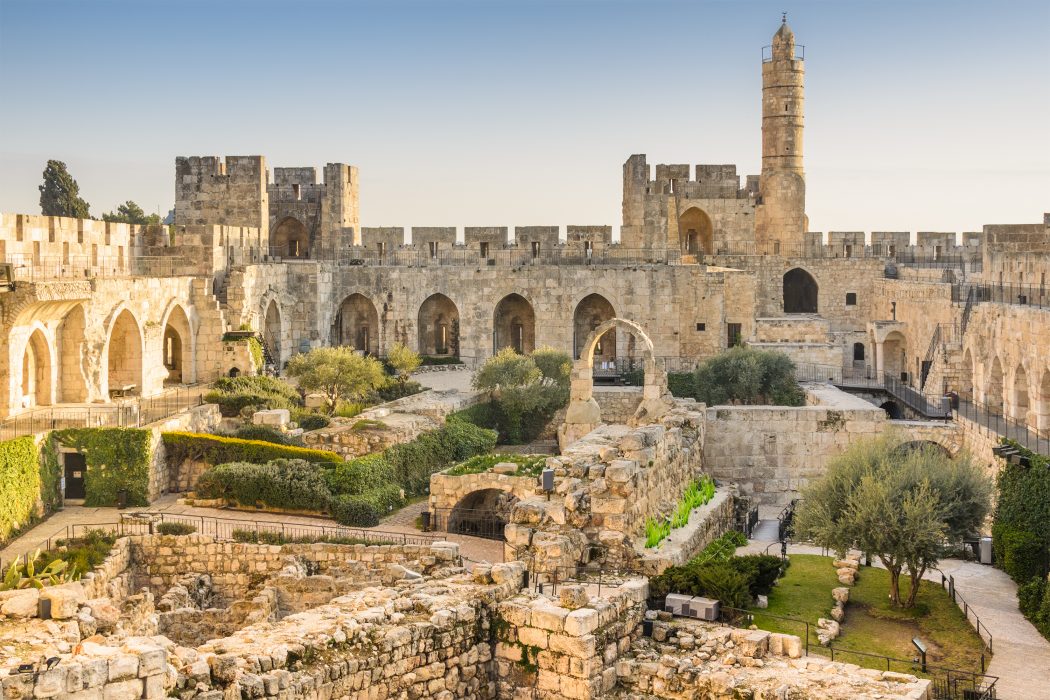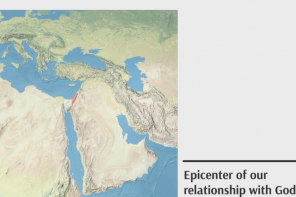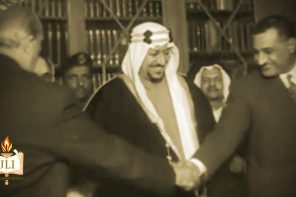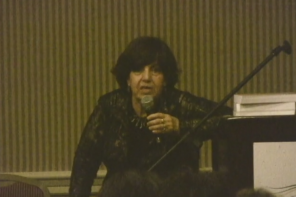Because what Happens in Israel does not stay in Israel…
My heart is in the east, and I in the uttermost west
How can I find savor in food? How shall it be sweet to me?
How shall I render my vows and my bonds, while yet Zion lies beneath the fetter of Edom, and I in Arab chains?
A light thing would it seem to me to leave all the good things of Spain
Seeing how precious in my eyes to behold the dust of the desolate sanctuary.
(Yehuda Halevi, 1075–1141)
***
At a distance of six parasangs is St. Abram de Bron, which is Hebron; the old city stood on the mountain, but is now in ruins; and in the valley by the field of Machpelah lies the present city. Here there is the great church called St. Abram, and this was a Jewish place of worship at the time of the Mohammedan rule, but the Gentiles have erected there six tombs, respectively called those of Abraham and Sarah, Isaac and Rebekah, Jacob and Leah. The custodians tell the pilgrims that these are the tombs of the Patriarchs, for which information the pilgrims give them money. If a Jew comes, however, and gives a special reward, the custodian of the cave opens unto him a gate of iron, which was constructed by our forefathers, and then he is able to descend below by means of steps, holding a lighted candle in his hand. He then reaches a cave, in which nothing is to be found, and a cave beyond, which is likewise empty, but when he reaches the third cave behold there are six sepulchres, those of Abraham, Isaac and Jacob, respectively facing those of Sarah, Rebekah and Leah. And upon the graves are inscriptions cut in stone; upon the grave of Abraham is engraved “This is the grave of Abraham”; upon that of Isaac, “This is the grave of Isaac, the son of Abraham our Father”; upon that of Jacob, “This is the grave of Jacob, the son of Isaac, the son of Abraham our Father”; and upon the others, “This is the grave of Sarah,” “This is the grave of Rebekah,” and “This is the grave of Leah.” A lamp burns day and night upon the graves in the cave.
Benjamin of Tudela (1130 –1173)
***
The exiles should remember the Land at every moment, and they should be actively thinking of how to return and dwell in the Land of their inheritance.
Rabbi Asher ben Yechiel (1250–1328)
***
Dwelling in the Land of Israel is a very great mitzvah. Nachmanides, of blessed memory, has already counted it as one of the 613 mitzvot of the Torah. In Sifrei, the rabbis wrote: “Dwelling in the Land of Israel is equivalent to all of the mitzvot; as it says: ‘You shall inherit it and settle in it and you will keep and do all the mitzvot.’” The sages have already put great emphasis on this and have said that all who dwell in the Land of Israel show that they have G-d; as it says: “To give them the Land of Canaan; I am the Lord your G-d.” And all who dwell in the Land of Israel dwell without sin; as it is said: “The people who dwell in it have their sins borne away.” And for all who are buried in the Land of Israel, it is as if they are buried beneath the altar; for one verse says, “An altar of earth” and another says “And His earth will atone for His people.”
Rabbi Shimon Duran (1366–1444)
***
Even though Jerusalem has been destroyed, one can still see in it a little bit of its surpassing beauty in its beautiful homes and markets. It has four covered marketplaces: one of Arabs selling woolen and linen garments; one of Jews, mostly selling spices; one of vegetables; and one of different foods. . . . There is only one synagogue in Jerusalem and it is beautiful, with four pillars. Its internal measure is 63 feet long, its width 28 feet. Before the Heichal is a room containing more than sixty Torah scrolls. They pray facing east, towards the Temple. . . . The congregation has 15 Ashkenazic householders; a great many Sephardim; Arab-like Moriscos who have dwelt in there from of old; and Moroccans from the land of the Berbers. All told, there are about three hundred householders, aside from around five hundred widows, who are well taken care of by the community.
Anonymous Italian Jew, 1522
***
There is no doubt that exile is a change and deviation from the natural order. For G-d ordered every nation in its proper place and ordered Israel in the place that is appropriate for this people, which is the Land of Israel.
Rabbi Yehudah Loew (1512–1609)
***
“Has the Six-Day War produced a change in my weltanschauung?” mused Elie Wiesel in early 1968. “I would go even further and say that the change was total, for it involved my very being as both a person and as a Jew.” The celebrated writer echoed a consensus among American Jews that they had reacted to the previous year’s events in perfect accordance with their historical obligations and to the betterment of Jewish existence. “To destroy [Israel],” he continued, “to let it be destroyed, would have meant the end of an affirmation, the end of hope, the end of our history which we shaped as both Jews and human beings . . . [T]he end of Israel would mean to me the end of man.” But Israel had not perished, and American Jews felt strengthened, if still baffled, by their role in its victory.” [W]hatever happened last year represents for me-and I hope for you as well,” Wiesel concluded, “a moment in which each gesture became an elan, an opening toward pride and humility and, above all, astonishment. For me, then, the problem is not how to explain it, but rather how to capture it, how to keep it alive, and make it mine.”
Eli Wiesel, Interviewed by Joshua Michael Zeitz, “If I Am Not for Myself…”: The American Jewish Establishment in the Aftermath of the Six Day War,” American Jewish History 88, no. 2 (2000)
***
I believe the Six-Day War and the fact of Israel play an essential role in the “at-homeness” of American Jews. By this I mean that any thinking Jew, even a man or woman who knows very little of Jewish texts or life, cannot fail to recognize that he or she was born in a century in which millions of people tried to eradicate the Jews and millions of Jews were unprotected from that fate. I have seen in even my most assimilated friends, who are marrying non-Jews without much of a qualm, an awareness of Jewish vulnerability that is, I think, unconsciously offset by the existence of the Jewish state. I would go further and say that we carry our heads high in America not only because the country has been home to us in an unprecedented way but because there is a country across the sea that is not home but homeland. For writers like me, for whom Jewish texts and a Jewish way of reading are defining, Israel is a living engagement, a country whose people, national life, literature and language—and myth—are at the vital core of my idea of myself, writer and Jew.
Nessa Rapoport, “Jewish Cultural Confidence in American Letters: A Writer’s Thoughts,” in The Six-Day War and World Jewry, Eli Lederhendler, ed., p. 122
***
[According to Charles Silberman in A Certain People: American Jews and Their Lives,] the Six-Day War marked the beginning of a Jewish revival. The depth of American Jewry’s emotional involvement in Israel’s fate, intensified by fears the war would end in another Holocaust, awakened Jews to the importance of their Jewishness. Abandoning a dominantly universalistic outlook, many came to embrace and assert their religious and ethnic distinctiveness. Moreover, estranged from their former allies among the Christians and the Left, Jews developed independent political activism to further specifically Jewish interests.Haim Arni and Jeffrey Mandl, “An Annotated Bibliography,” in The Six-Day War and World Jewry, Eli Lederhendler, ed., p. 328
***
The Six Day War also marked for some “a turning point in American Jewish consciousness,” changing the way American Jews thought “not only about Israel but about themselves.” A volume of contemporary Jewish fiction, published in 1992, actually used 1967 to demarcate when the contemporary era for American Jews began. With the war’s end, it explained, “Israel became the religion of American Jews, the transcendent object of their politics and philanthropy and pilgrimages and as such, a new source of loyalty and solidarity, and in time, of dogma and controversy.”
Jonathan Sarna, American Judaism, p. 316
***
The [1967] victory of the tiny Jewish state over the hosts of the Arab enemies sent a thrill through the hearts of the Jews in Russia, as it did, I suppose, for Jews all over the world. The feeling of deep anxiety for the fate of Israel with which Soviet Jewry followed the events was succeeded by boundless joy and overpowering pride in our people. Many, and especially the young, realized their Jewish identity for the first time… The anti-Israel campaign in the Soviet mass media served only to spread further Zionist feeling among the Jews.
Anatoly Dekatov in the Jerusalem Post, 1970 (cited in Sachar, Howard M., A History of Israel, p. 735)




